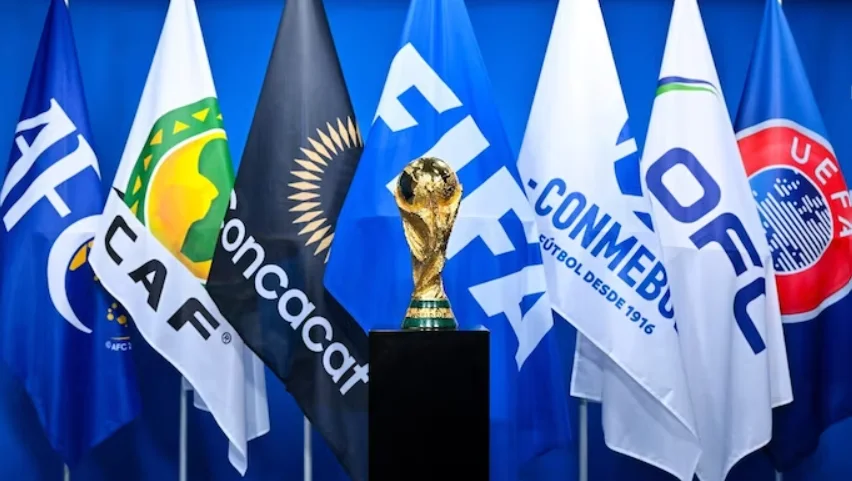
Get ready, soccer fans, because the 2030 World Cup is about to shake things up in a big way! Forget the borders; this time, we’re crossing entire continents. With a world that’s more connected than ever, FIFA’s decided it’s high time to truly go global. This upcoming World Cup promises to be an adventure we’ll be talking about for ages.
Now, for the jaw-dropping part: we’re about to see the magic of soccer unfold across three vast continents! That’s right – Europe, Africa, and South America. Hats off to these stellar countries ready to roll out the red carpet:
- Spain
- Portugal
- Morocco
- Uruguay
- Argentina
- Paraguay
A Centennial Tribute
The 2030 World Cup will be special for another reason. It marks the centenary of the World Cup, with the very first tournament having taken place in Montevideo, Uruguay in 1930. As a tribute, the opening matches will be held in South America, particularly in:
- Uruguay: Montevideo, where it all began.
- Argentina: A nation with a rich football history.
- Paraguay: Adding to the South American flavor.
FIFA’s initiative aims to commemorate this milestone appropriately. The World Cup then moves to North Africa and Europe, making it a truly intercontinental affair.
“In 2030, we will have a unique global footprint… welcoming and uniting the world while celebrating together the beautiful game, the centenary, and the FIFA World Cup.” – Gianni Infantino, FIFA President
Navigating Challenges: A Shift of Hemispheres
One of the intriguing aspects of this World Cup is the change in hemispheres, which means teams might potentially play in two different seasons during the tournament. This adds a layer of strategy for the teams and coaching staff, factoring in the climatic conditions and adjusting their gameplay accordingly.
Furthermore, Morocco will be stepping into the limelight, becoming only the second African nation after South Africa in 2010 to host the World Cup matches.
On the European front, while Spain previously hosted the World Cup in 1982, Portugal will be embracing this responsibility for the first time. However, Portugal isn’t a stranger to hosting major tournaments, having successfully hosted Euro 2004.
Automatic Qualifications
With the unique structure of this World Cup, the co-hosting nations will enjoy the privilege of automatic qualifications. The list includes:
| Country | Continent |
| Spain | Europe |
| Portugal | Europe |
| Morocco | Africa |
| Uruguay | South America |
| Argentina | South America |
| Paraguay | South America |
The Environmental Perspective
Lately, people have been really tuned into how big events are affecting our planet. Remember when FIFA said the 2022 World Cup in Qatar would have zero carbon footprint? Yeah, some folks called them out on that one.
Freddie Daley, a researcher, commented on the situation:
“A World Cup of this size and scale will involve a lot of air travel… I am very unsure whether FIFA will be able to deliver this in a sustainable and climate-friendly way.” – Freddie Daley, Researcher for Global Economy Policy at the University of Sussex
It’s a sentiment shared by many environmentalists, emphasizing that FIFA should be more responsible, given its global influence.

Looking Ahead: 2034 and Saudi Arabia’s Ambition
As everyone’s buzzing about the 2030 World Cup, let’s not forget that the race to host the 2034 World Cup is getting pretty spicy! Guess what? Saudi Arabia is super eager to host this mega event for the very first time. It seems like they’re on a mission to make a big splash in the sports world, especially with all the cool events they’ve hosted lately.
However, the journey won’t be smooth. Saudi Arabia’s approach has sparked debates about “sportswashing”, a term referring to using sports to improve a nation’s image. Still, as the deadline for prospective hosts approaches, it will be intriguing to see how the situation unfolds.
“If sportswashing is going to increase my GDP by 1%, then we’ll continue doing sportswashing.” – Crown Prince Mohammed bin Salman
The 2030 World Cup promises to be a landmark event, uniting nations and continents in the spirit of football. As we look forward to this global gala, the hope remains that the essence of the game remains intact, and the challenges it brings are addressed responsibly.







